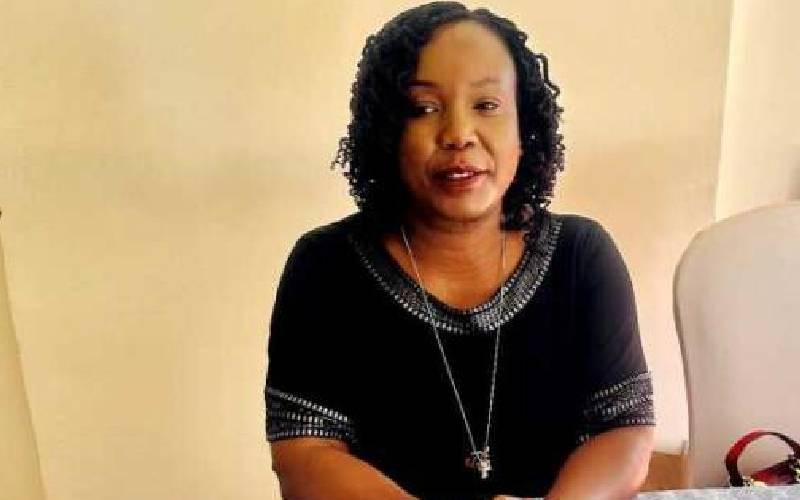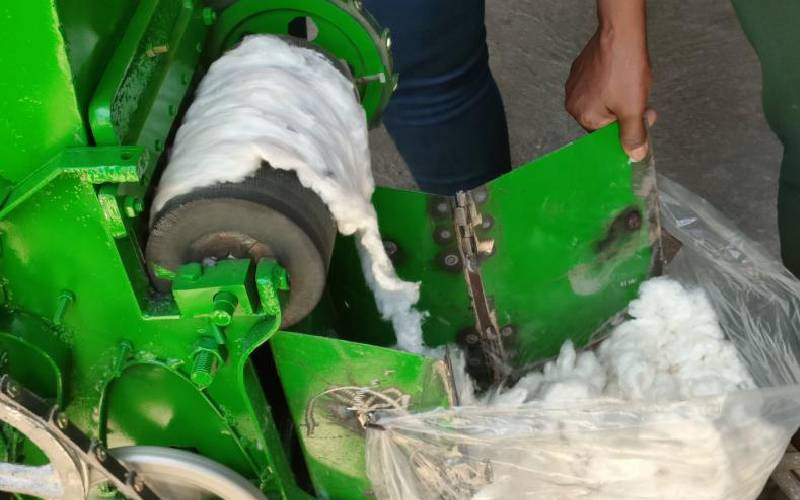By David Ochami in Juba
The start of South Sudanese voting for secession from Khartoum was euphoric and buoyed by optimism their referendum vote for new freedom would give Africa her 53rd republic. On the ground that ravaged by civil war patterned out along religious lines, and which claimed two million lives, they woke early to cast what many called the "vote for final freedom".
At 8am South Sudan’s President Salva Kiir Mayardit cast his vote at a polling centre inspirationally set up where the great rebel leader and his predecessor who put the South on the road to self-rule, the late Dr John Garang de Mabior, was buried.
Garang, who signed the Comprehensive Peace Agreement in 2005 that opened the door for Sunday’s march to independence from the largely Islamic North, died in an air crash but Sunday as his people voted, his towering shadow and uncompromising stewardship loomed in the background.  |
DECISION TIME: An ecstatic public turned up in large numbers at various polling stations to take part in South Sudan’s historic separation vote, Sunday. [PHOTOS: MARTIN MUKANGU and STAFFORD ONDEGO/STANDARD] |
Euphoric cheers of joy and disbelief the moment had come when the South Sudanese would decide their future by the ballot and not the bullet of the gun, exploded when Kiir cast his vote and displayed his finger dipped in indelible ink as a sign he had made his decision. Before he walked into the voting booth, Kiir paid his respects to the revered fallen leader who is exalted as the Father of the Nation by his people.
Sarah Ayom Angai, 98, who voted at Garang’s Mausoleum captured the mood in the country when she said she was happy to stand, at her frail age, on the threshold of history and exercise her right on a ballot paper. She said it was her first time to vote, and was escorted to the polling station by her sons and grandchildren.
She was ecstatic to see and be part of what she never thought she would in a lifetime. "Even if I die now I will die happy because I know this country has really changed," said the native of Aliab in Lakes State.
"We watched the light of the sun rise up this morning, the dawn of a new chapter for the South," Paul Nduru told the BBC.
Voting started peacefully across the ten states of South Sudan though it was not without a dark blot given the skirmishes in Abyei, which was not taking part in the referendum because it would first have to carry out its own plebiscite to decide if it will join the North or the South.
In Kenya, those registered turned up in large numbers in the eight stations including Dadaab and Kakuma Refugee Camps, Eldoret, Nakuru, Kitale, Bungoma and Nairobi’s Railways Club as well as Blue Springs along Thika Road. To show their enthusiasm for separation — which in order to be valid, 60 per cent of the registered four million voters must take part — the Southern Sudanese waved placards as long queues built up and snaked around polling stations before dawn.
Decades of conflict
The banners described the weeklong ballot as a "Last March to Freedom" after decades of conflict and displacement. After overnight chanting across towns and villages, jubilant South Sudanese converged on voting centers as early as 5.30 in the morning yesterday although actual casting began at 8am. Enthralled residents braved the scorching sun and torrid temperatures from mid-morning through to the afternoon without reports of negative incidents.
Prime Minister Raila Odinga and Vice President Kalonzo Musyoka sent the Kenya Government’s message of solidarity with the people of Southern Sudan and hailed the referendum as a historic moment. The overwhelming majority of men and women in extremely long separate queues in the voting centres openly proclaimed a preference for secession. They were required to carry only a voting card to the polling centre where voters embossed a thumbprint on a circle with a raised or open palm to indicate separation, or clasped hands to indicate unity, after which a corner of their card is excised and their left finger dipped in indelible black ink.
When voting in the referendum that will proceed for seven days, until January 15, Kiir proclaimed that "those who died during the struggle did not perish in vain", referring to the late Garang and the two million who died from war, disease and famine during the two-decade-long conflict between North and South.
Kiir said his Juba-based Government will protect North Sudanese in the South and said he expects the Khartoum authorities to reciprocate. He called for a peaceful vote over the remaining six days. According to information given by the South Sudan Referendum Commission 20,000 clerks have been deployed to assist the largely illiterate South Sudanese on a historic exercise in one of the world’s most underdeveloped places.
South Sudan’s Internal Security minister Gier Chuang Aluong announced 40,000 police officers have been deployed across the ten states to secure voting with five to 10 officers manning each centre.
Transparent boxes
Voters are casting ballots into transparent boxes to choose between unity and separation from the Sudanese union in fulfillment of the requirements of the CPA signed between the National Congress Party NCP of President Omar Hassan al Bashir and the Sudan Peoples Liberation Movement (SPLM).
Raising banners of the late Garang, elderly citizens, the sick, soldiers and the young embarked on what most described as a historic moment of a lifetime with some declaring that the outcome of the vote will end the "myth" that Sudan is an Arab nation.
"Sudan has never been one since creation," proclaimed 77-year-old Luual Diing Woll who added that, "today our people will prove unity cannot be imposed."
Luual, a native of Tonj town in Warap State the mainly non-Muslim South was voting for separation due to what he described as centuries of treachery by an Arab clique that "took independence from us in 1956 behind our backs" with the support of the departing British colonialists and declared that the entire Sudan has always been 69 per cent African.
He said the census at Independence (from Britain) disclosed that citizens of Arab origin accounted for 31 per cent of the total population but the clique that inherited Independence established a new identity for by joining Sudan to the Arab League.
 The Standard Group Plc is a multi-media organization with investments in media
platforms spanning newspaper print operations, television, radio broadcasting,
digital and online services. The Standard Group is recognized as a leading
multi-media house in Kenya with a key influence in matters of national and
international interest.
The Standard Group Plc is a multi-media organization with investments in media
platforms spanning newspaper print operations, television, radio broadcasting,
digital and online services. The Standard Group is recognized as a leading
multi-media house in Kenya with a key influence in matters of national and
international interest.
 The Standard Group Plc is a multi-media organization with investments in media
platforms spanning newspaper print operations, television, radio broadcasting,
digital and online services. The Standard Group is recognized as a leading
multi-media house in Kenya with a key influence in matters of national and
international interest.
The Standard Group Plc is a multi-media organization with investments in media
platforms spanning newspaper print operations, television, radio broadcasting,
digital and online services. The Standard Group is recognized as a leading
multi-media house in Kenya with a key influence in matters of national and
international interest.










